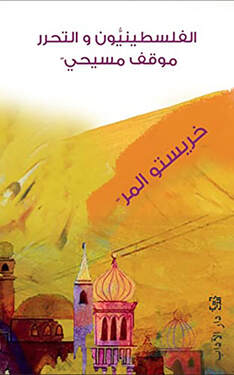|
Christo El Morr – Wednesday, April 10, 2024
Those words filled the child with beauty when he was little. Strange words, beautiful words in a beautiful melody. Words you are reading now can convey neither the music that emanates from the voice nor the waves of beauty on which the words swing like a boat. Those waves were flooding the child sleeping on the shoulder of the sea in the small sleeping city in the eastern Mediterranean. And the words, those strange words, were not important in the ear of the child, who understood nothing of the world around him except school companions, play, beauty, and pain. What was important to him was the beauty of that wave, which in those moments took him to a beautiful space that he could observe in the quiet morning and evening, while he was asleep or awake, 5 times a day. He certainly didn't notice the beauty five times a day; he probably noticed it two or three times, and he rarely noticed it at dawn even though his dreams – as he says, enchanted – drank from that stream of beauty while he slept. At dawn, when he grew up, a meaning came out before his eyes: "prayer is better than sleep." For some reason, he felt those words say, "prayer is sweeter than sleep." But the sweetness was more intense on Eid. He eagerly used to wait for Eid (Fitr) to see the butterflies of Eid's prayers flying around him when he woke up to joy. The boy wakes up. The chants run from the only mosque he knew, who, like him, was sleeping on the shoulder of the sea. He did not know the name of the mosque; he did not care that it was the name of Abu Bakr al-Siddiq. Later, the boy knew that Abu Bakr was one of the few who walked with the Prophet, with the only one whom people in his neighborhood and in every neighborhood called "the Prophet." The neighborhoods were colored with religions in the minds of adults; the boy did not see those colors as the neighborhoods do not change their shape nor do walls change their color, and he only noticed the colors of what noticed him first: poverty, poverty that ate the walls of the small neighborhoods of the small city. The boy also noticed the faces, and people do not change their faces, sighs, joys, or hopes if they belong, by chance, to one religion or another. That’s why he saw the faces as faces; later, he saw one face behind the faces. Eid prayers were not the only beauty that flowed from the minaret of Abu Bakr’s Mosque to the streets of the old neighborhoods. There was also Sheikh Abdul Basit Abdul Samad, a gigantic voice of a reader of the Qur'an. The boy, who had become a young man, felt that Abdul Basit was a resident of his city - the center of the world for the child he embraced. Later, as he was writing a book, he discovered that Abdel Basit was from Egypt, but Abdul Basit's voice remained above cities and times. The time when he discovered Abdul Basit Abdul Samad was the time of shared taxis (an Uber-like service void of exploitation). He was then a young university student exploring life through the eyes of a child, or the heart of a child tracking the traces of an inner voice that reverberates within every beauty. During the taxi trips to university, he used to listen with his friends to Abdul Basit’s enormous voice, the voice that people shared in the taxi as they shared the local cake with Summak they bought from the street; they shared the voice like they shared everything else in his neighborhood, from onion to coffee to sugar to salt and bread. When Amina used to discover that she was missing some materials to complete her cooking, she would go out of the open door of their house to the open door of the neighbor's house facing hers; she used to call out to Zeina, her neighbor, and ask for an onion, salt or something else; sometimes she used to walk to Louisa’s gentle house next door. Zeina's voice preceded her coming out from the inside with Amina's needed ingredient in her hand. Zeina, Louisa, Mary, or any other neighbor would do the same thing at another time when one of them forgets one of the ingredients in her cooking or when the ingredient forgets her, as the city's neighborhoods have never seen the gold of the “golden days” the middle class remembers in nostalgia. I'm not sure if the neighbors thank each other, and the boy doesn't remember hearing them thank each other at all, and certainly, they didn’t give back what they borrowed for cooking; the concept was alien to them. They just borrowed, and that’s it. They never felt they owed a "favor" to each other in those mysterious neighborhoods. People of those neighborhoods lived, exchanged, and helped each other, as everyone else in the Eastern Mediterranean (and elsewhere) does. As simple as that. Back to Abdul Basit Abdul Samad, whom the young man and his friends listened to while in the taxi. Abdul Basit used to open the wings of his voice and fly, flying high to mountains the young man had never seen before, except with Dimitri Coutya, the choir leader in the church of his neighborhood, as he once told me. During the recitation, when the eagle in the voice of Abdul Basit reaches a high altitude, it rests at the rock of silence for a few seconds. Then, it begins a new ascent to new heights again before suddenly descending into a bottomless valley. We flew with Abdul Samad, and we're still flying. He gave us wings that do not wither, opening the door of beauty to the horizon of ecstasy. The listeners were almost teary in front of the luminous waves appearing behind a human voice, behind the human longing to an infinity lurking behind Abdul Basit's voice, to a beauty that seeps from the human face, from the voice, from silence, from speech, from the living, from newness and oldness, from everything in which love kindled, from everything that knew the thirst for the deepest and highest. Comments are closed.
|
IF YOU KEEP RATIONALIZING ABUSE OF HUMAN RIGHTS, THIS SITE IS NOT FOR YOU
In GAZA A Genocide is Underway. Silence is complicity Christo El MorrI believe in My latest theology book :
Palestinian Liberation A Theological Approach (Ar) Free E-BookArchives
June 2024
Categories |




 RSS Feed
RSS Feed